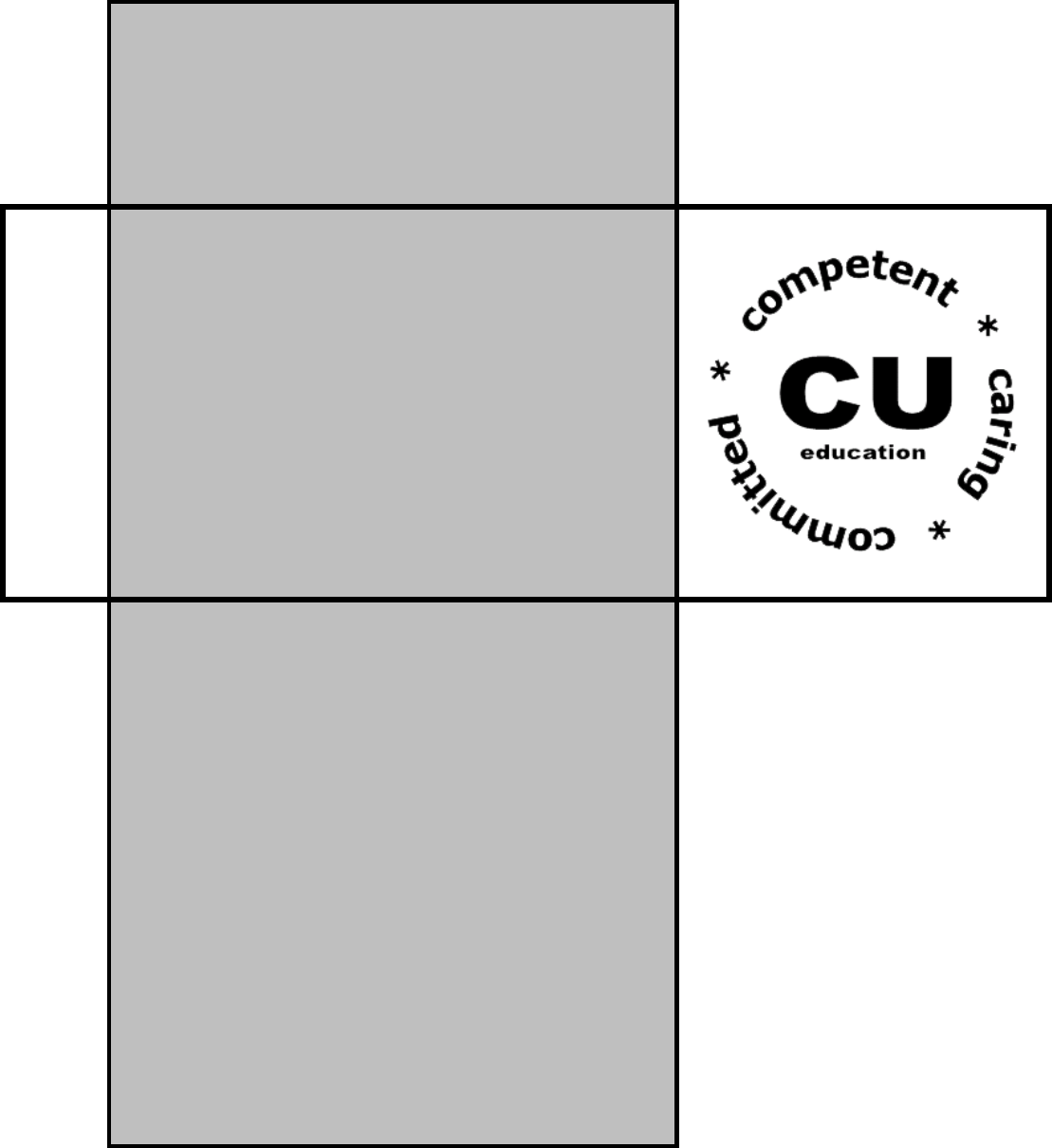
Cameron
University
Educator Preparation
Undergraduate
Handbook
2022-2023
Contacts
Director of Educator Preparation
Christopher Keller, Ph.D.
580-581-2858
Nance Boyer 1056
Teacher Certification Specialist
Tiffany Hamilton
580-581-2319
Nance-Boyer 1055
Academic Advisement Specialist – RSU
Jayne McLoughlin, B.A.
918-343-7971
Prep Hall 204
Field Experience Specialist
Jackie Herbert, M.S.B.S.
580-581-2305
Nance-Boyer 1078
Dean, School of Graduate and Professional Studies
Interim Dean, School of Arts and Sciences
Jennifer Dennis, Ph.D.
580-581-2339
Ross Hall 117
Chair, Department of Education
Stacie Garrett, Ed.D.
580-581-2320
Nance-Boyer 1078
Chair, Department of Communication, English &
Foreign Languages
Von Underwood, Ph.D.
580-581-2259
Nance-Boyer 2025
Chair, Department of Art, Music & Theatre Arts
Kirsten Underwood, Ph.D.
580-581-2480
Music Building 105
Chair, Department of Social Sciences
Lance Janda, Ph.D.
580-581-2517
Conwill Hall 100A
1
Education Programs
Undergraduate Student Handbook
Cameron University’s Educator Preparation Program .................................................................................... 3
Unit Mission ........................................................................................................................................ 3
Conceptual Framework ...................................................................................................................... 3
Core Beliefs ......................................................................................................................................... 4
Oklahoma State Teaching Certification .............................................................................................. 4
InTASC Model Core Teaching Standards/Oklahoma State Standards for Teacher Licensure ......................... 5
Oklahoma’s Teacher & Leader Effectiveness System ...................................................................................... 7
Specialty Professional Association Standards ................................................................................................. 8
Educator Preparation Council ......................................................................................................................... 9
Department of Education Honors Program .................................................................................................... 9
Educator Preparation (Additional Costs) ......................................................................................................... 10
Education Portfolio .......................................................................................................................................... 11
Undergraduate Education Portfolio Philosophy ................................................................................ 11
Overview of the Undergraduate Portfolio Requirement ................................................................... 12
Portfolio Management Software – Anthology ................................................................................... 12
Undergraduate Portfolio Policies & Procedures ................................................................................ 12
Portfolio Frequently Asked Questions ............................................................................................... 13
Detailed Portfolio Submission Policies ............................................................................................................ 14
Artifact/Reflection Submission/Resubmission Policy ........................................................................ 14
Courses Transferred from Other Colleges/Universities ..................................................................... 15
Failure to Submit Artifacts in a Timely Fashion or Failure to Pass the C&W Assessment .................. 15
Resubmission of Passing Artifacts/Reflections ................................................................................... 15
Undergraduate Portfolio Assessments ............................................................................................................ 16
Dispositions ..................................................................................................................................................... 18
Cameron University Dispositions Rubric ............................................................................................ 19
Policies Related to Dispositions ....................................................................................................................... 20
Admission to Educator Preparation ................................................................................................... 20
Subsequent Transition Points ............................................................................................................. 20
Education Program Transition Points .............................................................................................................. 21
Admission to Educator Preparation Flow Chart .............................................................................................. 23
Process for Gaining Admission to Educator Preparation ................................................................................ 24
Admission to Educator Preparation Policies ................................................................................................... 25
Students Who Have Been Admitted to Educator Preparation at Another University ....................... 25
Students Who Are Seeking Readmission ............................................................................................ 25
Foreign Language Proficiency for Students in Educator Preparation ............................................................. 26
Oklahoma State Certification Tests ................................................................................................................. 27
Praxis Performance Assessment for Teachers (PPAT) ..................................................................................... 28
About the PPAT .................................................................................................................................. 28
Candidate Expectations ...................................................................................................................... 28
Payment .............................................................................................................................................. 28
2
ETS Regulations .................................................................................................................................. 28
Registration & Submission Deadlines ................................................................................................. 29
Resubmission Policy ........................................................................................................................... 29
Field Experience Policies ................................................................................................................................. 30
Background Checks ............................................................................................................................. 30
Diversity of Placements ...................................................................................................................... 30
Field Experience Transfer Policy ......................................................................................................... 30
Assigning Placements ......................................................................................................................... 30
Procedure for Appealing a Placement ................................................................................................ 31
Guidelines for Being in the Schools .................................................................................................... 31
Evaluation of Field Experiences .......................................................................................................... 31
Dealing with Field Experience Concerns ............................................................................................ 31
Education Programs – Required Field Experiences ......................................................................................... 32
Descriptions of Undergraduate Field Experiences .......................................................................................... 33
Entry to Student Teaching Flow Chart ............................................................................................................. 34
Process for Gaining Admission to Student Teaching ....................................................................................... 35
Out of Area Student Teaching Policy ............................................................................................................... 35
Academic Labs ................................................................................................................................................. 36
Tutor.com ........................................................................................................................................................ 36
Student Organizations ..................................................................................................................................... 37
Honor Society .................................................................................................................................................. 38
Undergraduate Education Scholarships & Financial Incentives ...................................................................... 39
Cameron Scholarships ........................................................................................................................ 39
State of Oklahoma Scholarships ......................................................................................................... 39
Cameron Financial Resource Specialists ............................................................................................ 39
Department of Education Complaint Procedure ............................................................................................. 40
Education Programs Plan of Improvement ..................................................................................................... 40
State Minimum Teacher Salary Schedule ........................................................................................................ 41
COVID-19 Policy Adjustment ........................................................................................................................... 42
Teacher Supply and Demand Study ................................................................................................................. 42
Oklahoma Education Employment Opportunities .......................................................................................... 43
Content subject to change in order to reflect changes in the Educator Preparation program.
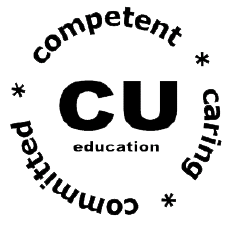
3
Cameron University's Educator Preparation Program
Cameron offers educator preparation programs accredited by the Office of Educational Quality and
Accountability (formerly the Oklahoma Commission for Teacher Preparation) and the Council for the
Accreditation of Educator Preparation (CAEP).
Cameron offers education degrees at the early childhood, elementary, and secondary levels. Secondary
education programs are offered in English and social studies. Elementary/secondary programs are offered in
music. Additional coursework can also be taken to “add on” special education to an early childhood or
elementary major.
Unit Mission
We believe that competent, caring, and committed educators are successful in their careers.
Educators who are competent use pedagogical and content knowledge to support learning for all,
provide instruction based on standards and student needs, and use assessment and strategies for active
engagement so that all can learn.
Educators who are caring are responsive to individual needs and create learning environments that
promote positive social interactions and motivation.
Educators who are committed collaborate with others by using effective communication skills while
being reflective decision makers and lifelong learners who are willing to change in order to continuously
improve.
We believe that all of these qualities are fostered through standards-based coursework with coordinated field
experiences.
Conceptual Framework
Educator Preparation at Cameron University is dedicated to producing COMPETENT, CARING, and COMMITTED
educators who can successfully work with diverse students.
An educator who is COMPETENT displays the following dispositions:
Reflectiveness
Willingness to learn
An educator who is CARING displays the following dispositions:
Advocating for the learning of all children
Empathy
Open-mindedness
An educator who is COMMITTED displays the following dispositions:
Positive attitude
Integrity
Dedication
Confidence
4
Core Beliefs
Cameron University's education programs are built upon the following core beliefs:
1. An effective educator uses knowledge of human development and learning, combined with knowledge
of pedagogy and content, to best support learning for all students.
2. An effective educator uses formal and informal assessment to evaluate student learning and modifies
instruction as needed so that all students can learn.
3. An effective educator engages students in critical thinking and problem solving.
4. An effective educator plans instruction based on student needs, curriculum goals and standards, and
community needs and in response to diversity.
5. An effective educator creates classroom environments that promote fairness, positive social
interactions, active learning, and motivation so that students will have a high level of engagement.
6. An effective educator is skilled in verbal, nonverbal, and written communication in order to clearly
communicate with students, families, colleagues, and the community.
7. An effective educator is able to think critically and solve problems and uses technology to enhance
instruction.
8. An effective educator is a reflective, life-long learner who seeks out professional development resources
and opportunities, collaborates with colleagues, is willing to change as needed, and maintains a high
level of professionalism.
Oklahoma State Teaching Certification
Cameron University will recommend candidates for Oklahoma state certification in all teacher preparation areas
after candidates have completed all required coursework/degree requirements along with additional state
certification requirements. For details about the state requirements, please consult the Oklahoma State
Department of Education. Information about transferring an Oklahoma State Teaching Certificate to another
state can be obtained from that state’s department of education.
5
InTASC Model Core Teaching Standards /
Oklahoma State Standards for Teacher Licensure
In April 2011, the Interstate Teacher Assessment and Support Consortium (InTASC) adopted new standards. These
standards were adopted by the state of Oklahoma in 2013 as the state standards for teacher licensure.
THE LEARNER & LEARNING
Standard 1: Learner Development
The teacher understands how learners grow and develop, recognizing that patterns of learning
and development vary individually within and across the cognitive, linguistic, social, emotional,
and physical areas, and designs and implements developmentally appropriate and challenging
learning experiences.
Standard 2: Learning Differences
The teacher uses understanding of individual differences and diverse cultures and communities
to ensure inclusive learning environments that allow each learner to reach his/her full potential.
Standard 3: Learning Environments
The teacher works with others to create environments that support individual and collaborative
learning, and that encourage positive social interaction, active engagement in learning, and self-
motivation.
CONTENT KNOWLEDGE
Standard 4: Content Knowledge
The teacher understands the central concepts, tools of inquiry, and structures of the
discipline(s) he or she teaches and creates learning experiences that make these aspects of the
discipline accessible and meaningful for learners.
Standard 5: Application of Content
The teacher understands how to connect concepts and use differing perspectives to engage
learners in critical thinking, creativity, and collaborative problem solving related to authentic
local and global issues.
INSTRUCTIONAL PRACTICE
Standard 6: Assessment
The teacher understands and uses multiple methods of assessment to engage learners in their
own growth, to monitor learner progress, and to guide the teacher’s and learner’s decision
making.
Standard 7: Planning for Instruction
The teacher plans instruction that supports every student in meeting rigorous learning goals by
drawing upon knowledge of content areas, curriculum, cross-disciplinary skills, and pedagogy, as
well as knowledge of learners and the community context.
Standard 8: Instructional Strategies
The teacher understands and uses a variety of instructional strategies to encourage learners to
develop deep understanding of content areas and their connections, and to build skills to apply
knowledge in meaningful ways.
6
PROFESSIONAL RESPONSIBILITY
Standard 9: Professional Learning & Ethical Practice
The teacher engages in ongoing professional learning and uses evidence to continually evaluate
his/her practice, particularly the effects of his/her choices and actions on others (learners,
families, other professionals, and the community), and adapts practice to meet the needs of
each learner.
Standard 10: Leadership & Collaboration
The teacher seeks appropriate leadership roles and opportunities to take responsibility for
student learning, to collaborate with learners, families, colleagues, other school professionals,
and community members to ensure learner growth, and to advance the profession.

7
Oklahoma’s Teacher & Leader Effectiveness (TLE) System
Teacher Characteristics
Leader Characteristics
• Organizational and classroom management
skills
• Ability to provide effective instruction
• Focus on continuous improvement and
professional growth,
• Interpersonal skills
• Leadership skills
• Organizational and school management
skills
• Instructional leadership
• Professional growth and responsibility
• Interpersonal skills
• Leadership skills
• Stakeholder perceptions
Evaluation System
The TLE will have a five-tier rating system: Superior, Highly effective, Effective, Needs improvement, and
Ineffective. The State of Oklahoma has approved three different frameworks for evaluation of teachers,
but most area districts have adopted the Tulsa TLE Observation and Evaluation System.
Scores are based on qualitative data (e.g. Evidence-based; observable, measurable characteristics
correlated to student performance) and, if a district opts, quantitative measures (e.g. student growth).
For those hired during or after 2017-2018, a probationary teacher becomes a career teacher after
completing four or more consecutive years in one school district and has averaged an evaluation rating
of at least “effective” for the four-year period and has received a rating of “effective” for the last two
years for the four-year period.
All probationary teachers receive formative feedback at least two times per school year.
Individualized Program of Professional Development
Develop an annual professional growth goal & plan in conjunction with your evaluator. Resources should
be provided by the district and State Department of Education to help meet this goal.
For additional and the most current information on the TLE please visit: http://ok.gov/sde/tle.
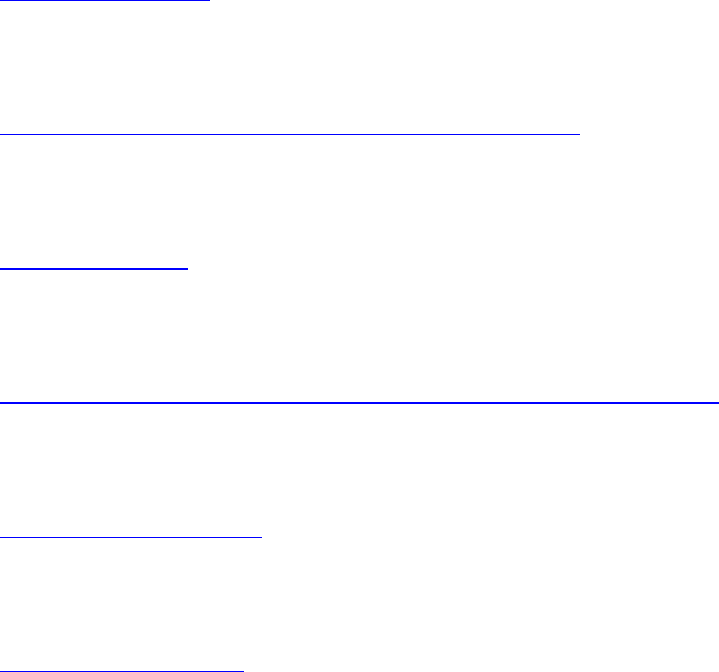
8
Specialty Professional Association Standards
Each program must also meet the standards of the corresponding specialty professional association
(SPA). Below are links to the standards for each SPA.
Early Childhood Education
National Association for the Education of Young Children (NAEYC)
http://www.naeyc.org/
Elementary Education
Council for the Accreditation of Educator Preparation (CAEP)
http://caepnet.org/standards/k-6-elementary-teacher-standards
English Education
National Council of Teachers of English (NCTE)
http://www.ncte.org
Music Education
Oklahoma State Department of Education
http://sde.ok.gov/sde/sites/ok.gov.sde/files/documents/files/Competencies.pdf
Social Studies Education
National Council for the Social Studies (NCSS)
http://www.socialstudies.org
Special Education
Council for Exceptional Children
https://www.cec.sped.org/
9
Educator Preparation Council
The Educator Preparation Council, which includes representatives from all education programs spanning
several university departments, serves in an advisory capacity to the Director of Educator Preparation.
The council is vital to the governance of Cameron’s program and meets monthly during the school year.
The council does the following:
reviews educator preparation regulations and proposed changes;
reviews all approved educator preparation programs;
makes recommendations regarding the professional education sequence; and
makes recommendations regarding the selection, admission, and retention of educator
preparation candidates.
Department of Education Honors Program
(for candidates majoring in early childhood or elementary education)
Admissions Requirements
Minimum cumulative GPA of 3.5 and 60 hours of UG credit
Eligible students will be invited to an information session about the Honors Program in the CU
Department of Education. Interested students can apply for admission to the program by completing a
brief application. Once admitted, the student will be assigned a faculty mentor to assist the student in
completing all required honors experiences.
Student Learning Outcomes
Integrate knowledge from diverse perspectives and disciplines (applied and theoretical) in
strategies and dialogue.
Make substantial community contributions through service learning activities
Engage in advocacy efforts
Apply discipline-specific (and cross-discipline) based knowledge to design, execute and report on
specific research/action research, to include curriculum development.
Required Honors Experiences
Independent Study with faculty member(s) to study diverse educational foundations,
philosophies, perspectives and disciplines through assigned readings and reports
Select and complete 60 hours of service learning (within the scope of
education/children/families).
Identify, participate and report on an advocacy project
Design, implement, publish and present on a research/action research project of student’s
choice with support of faculty.
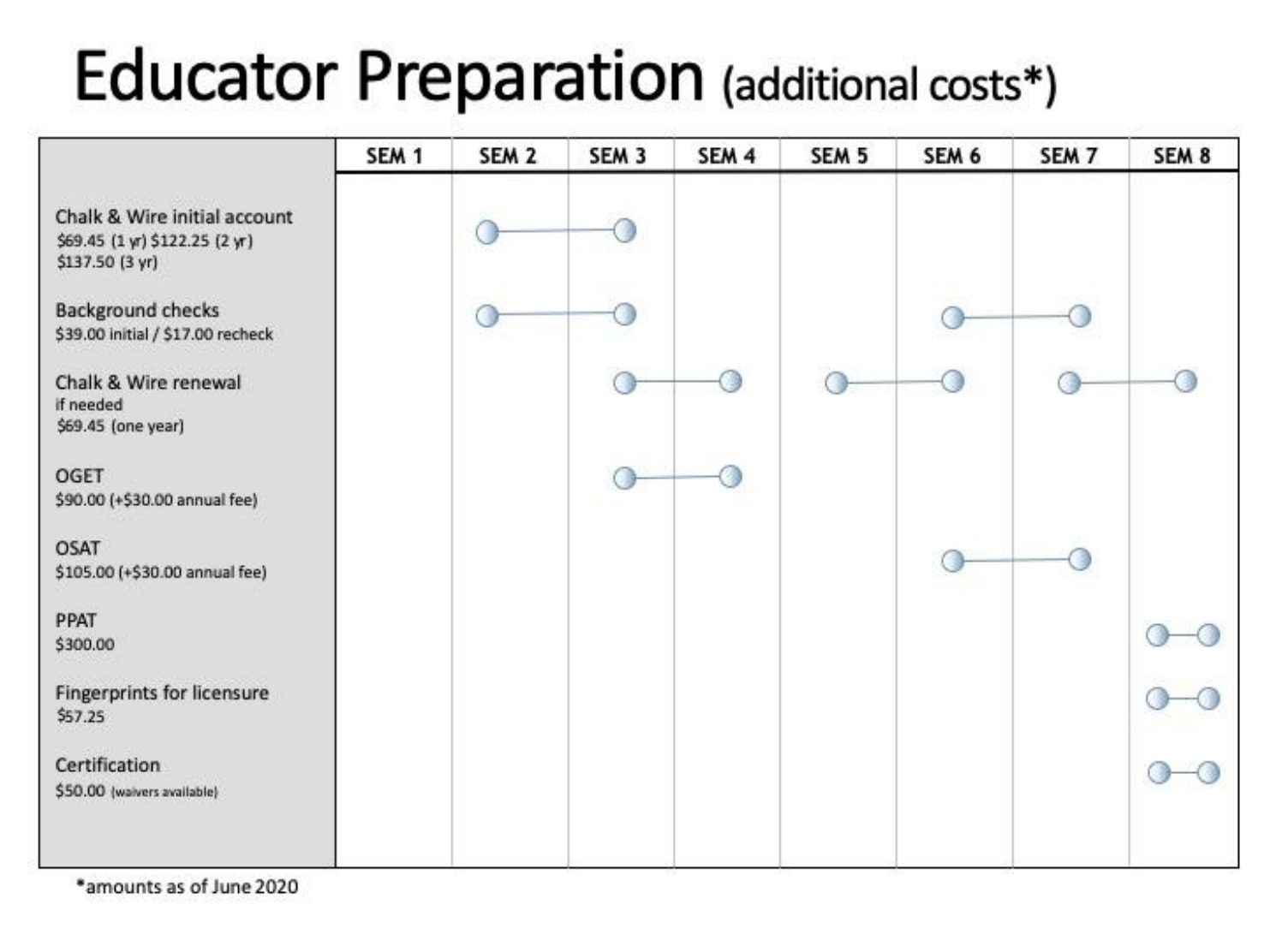
10
(AVAILABLE FROM CU BOOKSTORE)
11
Education Portfolio
AKA Chalk & Wire
The institution requires all initial and advanced certification candidates to develop a portfolio which documents
the candidate's accomplishments, learning, and strengths related to the standards and outcomes established by
the Office of Educational Quality and Accountability, the Oklahoma State Regents for Higher Education, the
Oklahoma State Department of Education, and the institution. For purposes related to institutional
accreditation, the portfolio presents evidence that the institution is providing initial, on-going, and focused
opportunities leading to student achievement of standards and outcomes determined by the aforementioned
groups.
The educator preparation unit and programs:
1. Require the portfolio development process to begin no later than initial enrollment into the
professional education course work;
2. Have a written philosophy related to portfolio development and assessment which is consistent with
the institution's and unit's mission and conceptual framework(s);
3. Have written policies, criteria, and institutional rubrics related to the portfolio assessment(s) of
individuals enrolled in initial and advanced certification programs.
Consequently, it is the policy of Cameron University that all teacher candidates, including students transferring
from other institutions, shall submit required artifacts for all courses which are assessed as meeting appropriate
program standards on the schedule specified in the Undergraduate Transition Points requirements.
Undergraduate Education Portfolio Philosophy
Faculty define a portfolio as a collection of documented, credible and tangible artifacts that chronicle the
accomplishments of teacher candidates throughout their preparation. The portfolio illustrates the diverse range
of experience and learning opportunities provided to candidates throughout their programs. The portfolio
documents candidates’ growth toward meeting the ten (10) InTASC Model Core Teaching Standards/OK State
Standards for Teacher Licensure as well as Specialized Professional Association (SPA) standards. The portfolio
development process allows teacher candidates to produce evidence of their growth as they critically reflect on
their own learning as well as that of the students they will teach.
Creation of the portfolio in web-based format gives candidates the flexibility to develop and include multi-
dimensional artifacts. Transition points established for candidate portfolio review and assessment give
candidates feedback on their progress in becoming competent, caring, and committed educators. The pre-
service portfolio serves as documentation of authentic faculty assessment and a tool for program improvement.
The portfolio is built around the InTASC Model Core Teaching Standards/OK State Standards for Teacher
Licensure, the philosophy of Cameron University’s education unit, and the Conceptual Framework adopted by
the unit.
At Cameron University, you will hear faculty and staff talk about the Chalk & Wire portfolio or the Chalk & Wire
assignments required for a class.

12
Overview of the Undergraduate Portfolio Requirement
All educator preparation candidates must have a completed and satisfactorily assessed electronic portfolio in
order to achieve a successful academic experience at Cameron University’s Department of Education. The
documents you upload to your portfolio reflect your growth and professional development through the conduct
of your academic program. Documents you submit to the portfolio represent completed course assignments
from your program of studies, evidence of your field classroom experiences, and other aspects of your
preparation program.
You will be using electronic, online software through which to process and store your documents (artifacts) and
in which a record of artifact assessment is recorded. Taken together, the work recorded in your portfolio
represents evidence of your understanding and practical application of the content knowledge, skills, and
dispositions embraced within your preparation program.
In addition to making the results of your portfolio available to university instructors and colleagues, you may be
asked to submit your portfolio to program accrediting agencies. Your web-based portfolio will be archived by the
Cameron Department of Education. You are the owner of your portfolio contents. No staff or faculty persons are
authorized to modify the documents you have prepared and submitted to your electronic portfolio.
Portfolio Management Software – Anthology
The Department of Education has elected to use the services and resources of Anthology Portfolio to deliver an
electronic portfolio management system to faculty and teacher candidates.
Undergraduate Portfolio Policies & Procedures
All candidates admitted to the Educator Preparation Program at Cameron University are required to develop
an electronic portfolio using the Anthology portfolio system known at Cameron as Chalk & Wire.
The portfolio will be built within the framework of the Anthology software. Initial training for the use of the
software will be provided by the department, but it is the candidate’s responsibility to maintain and manage
the portfolio appropriately.
The portfolio development process begins in EDUC 3003, Introduction to Teaching, or when a transfer
student applies for admission to the Educator Preparation Program and ends with student teaching.
A code to access the Anthology software that powers CU’s Chalk & Wire portfolio must be purchased from
the Cameron University Bookstore as a one-, two-, or three-year subscription. The portfolio must be active
for each semester of education program coursework. Portfolio renewal codes are only available from the
bookstore. Because the bookstore is open limited hours, it is strongly recommended that you login and
check your expiration date at the beginning of each semester to insure that your portfolio remains active
for all assignment due dates.
The portfolio includes documentation that candidates meet the InTASC Model Core Teaching Standards/OK
State Standards for Teacher Licensure. Additional artifacts may be required for documentation of specific
program standards.

13
The portfolio is comprised of required artifacts and reflections. Every artifact must be created by the
candidate and be accompanied by a reflection.
Instructors in the professional education sequence will provide the opportunity for candidates to develop
artifacts which demonstrate their progress in attaining the required standards. Candidates will have
assigned artifacts from their coursework to include in their portfolios. Artifacts will be the original work of
teacher candidates, not material copied from other sources. Artifacts should demonstrate the candidate’s
best work at the time of assignment.
The courses in the professional education sequence require that specific portfolio artifacts, forms, or
standards be included in the portfolio and submitted to the instructor for assessment. Portfolio artifacts,
forms, and standards which may be required for a specific course must be submitted to instructors for
scoring during the semester in which the course is taken. Instructors may include specific dates for
submitting portfolios, portfolio artifacts, forms, and standards in their course syllabus.
Once an artifact has been entered in the portfolio and assessed by an instructor, the artifact must remain in
the portfolio.
Portfolio Frequently Asked Questions
Q. How do I obtain an account for my Chalk & Wire portfolio?
A. You may purchase an initial license or an annual subscription renewal for the Anthology software at the
Cameron University Bookstore at any time. One-, two-, and three-year licenses are available.
Q. Where can I learn how to use Chalk & Wire?
A. Student tutorials and other support services are available on Blackboard and within the Anthology software.
The login page is: http://chalkandwire.com/cameron/ as of June 2021.
Q. Can I access my account and portfolio on any computer at any location?
A. Yes. The Anthology software is completely web-based and can be reached from any computer or device. As of
June 2021, there is not a smartphone app.
Q. When are the artifacts (documents) I prepare for class assignments required to be uploaded to my portfolio for
assessment by my instructors?
A. Your portfolio artifacts will be assessed by your instructors prior to the completion of any course which is part
of your program plan of studies.
Q. Is the assessment of my portfolio directly related to the grades I receive in my courses?
A. Not directly. A course cannot be considered complete until the portfolio assessment is made by the instructor.
Course grades, on the other hand, are determined by the assignment rubrics and grading protocol found in the
course syllabus.
Q. Will I be able to resubmit documents for re-assessment in Chalk & Wire after they have been evaluated by my
instructors?
A. Yes—in the case of a score that is not passing; No—in the case of a simply wanting a higher score. If a student
does not receive an overall passing score of 3 on the artifact rubric and/or the reflection rubric, the
artifact/reflection must be resubmitted and rescored until it does receive an overall passing score of 3 on the
appropriate rubric (unless otherwise specified on the course syllabus). This should be done during the

14
semester the course is taken or as agreed upon by instructor and student. Artifacts or reflections that have
already received a passing score will not be re-scored.
Q. Can I include additional artifacts in my portfolio besides those that are required?
A. Yes, you may add artifacts to your portfolio at any time.
Q. Will my instructors or other university staff members have access to, or modify the contents of my portfolio?
A. No. You are the owner of your portfolio. No one--other than the system administrator, and then only for
managing technical issues--will have access to, or modify, the files you upload to your electronic portfolio.
Q. I’m a transfer student. Do I still have to meet portfolio requirements?
A. Yes, transfer candidates still must complete portfolio assignments including those for courses being
transferred from another university. All assignments from courses transferred in will be scored by the
curriculum committee.
Q. If I get stuck while working on Chalk Wire, who can I contact?
A. Tiffany Hamilton serves as Cameron’s Chalk & Wire help desk. She can help with using the portfolio, but you’ll
need to get all access codes through the bookstore. You can reach Tiffany by email at
[email protected] or by calling the Department of Education office 581-2320. Please allow a
reasonable amount of time for her to respond to any questions – and don’t wait until the last minute and end
up stuck!
Q. If I want to use P-12 student information or images in my class assignment documents, should I obtain parental
permission before I include that information in my portfolio artifacts?
A. Yes. While only those officials and colleagues who have a need to know will have access to the artifacts in your
portfolio, do not make written references to, or use images of, students involved in your field experiences
without first obtaining a release from parents giving you permission to include those names or images in your
documents.
Detailed Portfolio Submission Policies
Artifact/Reflection Submission/Resubmission Policy
Students are required to submit a passing portfolio artifact(s) and reflection(s) for education courses in Chalk &
Wire. Each artifact and reflection must be assessed by the course professor during the semester that the student
is enrolled in the education course. If a student does not receive an overall passing score (typically a score of 3
unless specified otherwise on the course syllabus) on the artifact rubric and/or the reflection rubric, the
artifact/reflection must be resubmitted and rescored until it DOES receive an overall passing score on the
appropriate rubric. This should be done during the semester the course is taken or as agreed upon by instructor
and student.
Required artifacts/reflections for five of the standards must receive passing scores in Chalk & Wire prior to
admission to Student Teaching. Required artifacts/reflections for all ten standards must receive passing scores
on the Chalk & Wire assignments prior to program completion.

15
Courses Transferred from other Colleges/Universities
Students transferring education courses from other colleges/universities should be able to meet the Oklahoma
State Standards through the portfolio using work completed in the class that is being transferred. It is not the
intent that transfer students will have to complete a new assignment identical to Cameron’s, but rather that
students will meet the expected level of competence through a previously completed assignment. The
departmental Course Transfer form will indicate if there is a portfolio assignment required. If so, the student will
be referred to the chair of the departmental curriculum committee who will assign an instructor to work with
the student to identify or create an artifact that will fulfill the Oklahoma State Standard for that course. The
student will then submit the artifact and reflection to their transfer portfolio in Chalk & Wire for that instructor
to assess.
Failure to Submit Artifacts/Reflections in a Timely Fashion or
Failure to Pass the Chalk & Wire Assessment
If a student has failed to submit or pass the required artifact/reflection during the course, he/she will receive the
consequence listed in the course syllabus. Submission of required artifacts/reflections after course completion
may result in delay of the student teaching semester OR delay of graduation. Late artifacts/reflections should
be submitted to the Chair of the Curriculum Committee. Allow at least 4 weeks for assessment and notification.
Should the late artifact or reflection not pass the Chalk & Wire assessment by the Curriculum Committee, it will
need to be resubmitted until it does pass. Failure to receive a passing score may delay the student teaching
semester or graduation.
Resubmission of passing artifacts/reflections
Resubmission of passing artifacts/reflections is permitted for inclusion in the student’s Chalk & Wire portfolio
but passing artifacts/reflections will not be scored again by any member of the education faculty for any reason.
16
Undergraduate Portfolio Assignments
(all coursework required of all majors)
Candidate portfolios will vary based on their plan of study. It is not expected that something be submitted for
every part of the table of contents – only on the very rarest of occasion will a candidate have something
submitted for each part of the portfolio. Also we are always working to improve our curriculum and
assessments, therefore the most current information will be found on course syllabi.
ECE 2163 Health, Safety, and Nutrition
Advocacy Assignment Rubric (174)
ECE 3303 Home, School, and Community Relations
Parent/Community Involvement Activity Rubric (173)
ECE 3154 Methods and Practicum in Early Childhood Education
Professionalism Poster Presentation (367)
ECE 4144 Methods and Practicum in Cognitive Development
Unit Plan Rubric (491)
ECE 4653 Assessment of Young Children
Performance Assessment Rubric (431)
EDUC 3003 Introduction to Teaching
Introduction to Teaching Lesson Plan Rubric (410)
EDUC 3003 Reflection (419)
EDUC 3023 Creative Experiences in Early Childhood & Elementary
Performing & Visual Arts Rubric (313)
EDUC 3533 Intermediate Reading
ELL Reading Strategy File Rubric (342)
EDUC 3673 Media and Technology
Instructional Strategies Website Project Rubric (490)
EDUC 3733 Developmental Psychology
Child Observation Paper and Game Rubric (423)
EDUC 3733 Reflection (413)
EDUC 3753 Educational Psychology
Ethical Practice, Professional Learning & Problem Solving Project Rubric (492)
EDUC 4313 Practicum: Impacts on Learning*
PPAT Task 1 Step 1 (494)
PPAT Task 1 Step 2 (495)
*requires passing score of 2.4 or better (as opposed to the usual 3.0)
17
EDUC 4423 Language Arts Methods
Language Arts Lesson Plan (438)
EDUC 4443 Social Studies Methods
Unit Plan Rubric (491)
EDUC 4463 Math Methods
Math Inquiry Lesson Plan (443)
EDUC 4483 Science Methods
Science Inquiry Lesson Plan (442)
EDUC 4553 Diagnosis of Reading
Reading Diagnosis Case Summary (286)
EDUC 4653 Classroom Assessment
Performance Assessment Rubric (431)
EDUC 4653 Reflection (418)
EDUC 4935 Clinical Experience in Teaching I
Student Teaching Weekly Reflections Rubric (485)
ENGL 4773 Teaching of English
Unit Plan Rubric (491)
HIST 4773 Methods of Teaching Social Studies
Unit Plan Rubric (491)
MUSC 4712 Elementary Methods
Unit Plan Rubric (491)
SPED 3103 The Exceptional Child
IEP Rubric (424)
SPED 3103 Reflection (414)
SPED 3203 Characteristics of the Exceptional Child
Determining Eligibility/Individualized Education Plan (IEP) with Transition (456)
SPED 3223 Assessment & Evaluation in Special Education
Assessment Portfolio (382)
SPED 3243 Behavior Intervention and Management
Functional Behavioral Analysis and Behavior Intervention Plan (345)
SPED 3263 Foundations of Special Education
Case Study Analysis (346)
SPED 4413 Teaching Students with Disabilities
Lesson Plans (368)
18
Dispositions
adopted Fall 2016
Caring
1. Advocating for the learning of all children
(Social justice/Doing the right thing/ Servant leadership)
2. Empathy
(Kind/Compassionate/Nurturing/Positive view of others)
3. Open-mindedness
(Growth mindset re: others/Non-judgmental)
Competent
4. Reflectiveness
(Is a reflective decision-maker)
5. Willingness to learn
(Growth mindset re: self/Eagerness to learn/Open to feedback/Lifelong learning/Use of
technology)
Committed
6. Positive attitude
(Optimism)
7. Integrity
(Honesty/Consistency of character)
8. Dedication
(Passion/Grit/Goal-orientation)
9. Confidence*
(Self-efficacy)
* undergraduates: to be emphasized through the program but assessed only at end
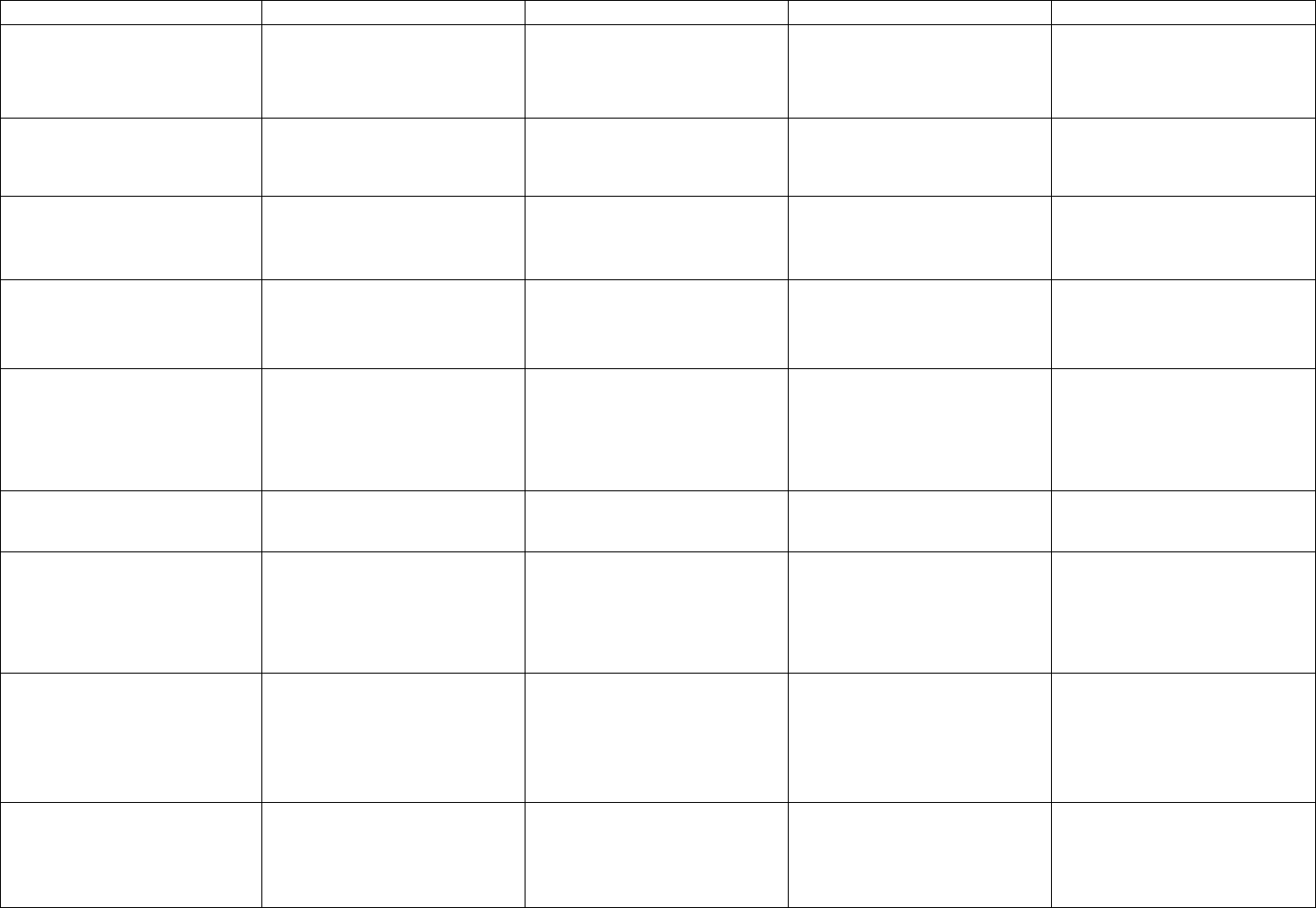
19
Cameron University Dispositions Rubric adopted 8/17
Needs Improvement
Developing
Satisfactory
Target
Advocating for the learning
of all children
(Social justice/Doing the right thing/
Servant leadership)
Does not understand that being
a child advocate is a part of
being an educator
Is aware that students need
someone to stand up for their
interests
Works in the best interest of
own students
Makes a concerted effort to
challenge negative attitudes or
practices to serve all students
Empathy
(Kind/Compassionate/ Nurturing/
Positive view of others)
Appears to be unaware of
others’ behavior
Appears to be aware of others’
behavior
Acknowledges that actions may
impact others; Treats others
with kindness
Considers others’ perspectives
before taking action; Treats
others with compassion
Open-mindedness
(Growth mindset re: others/Non-
judgmental)
Acts as though everyone should
think and act the same
Acknowledges that others may
think differently
Accepts beliefs and ideas that
are different from own
Meets others where they are
and works to help them improve
Reflectiveness
(Is a reflective decision-maker)
Does not connect outcomes to
own behavior
Reflects on experiences, new
knowledge, and actions when
prompted
Reflects on experiences, new
knowledge, and actions in an
independent way
Reflects on experiences, new
knowledge, and actions in an
independent way; Revises
decisions based on reflections
Willingness to learn
(Growth mindset re: self/ Eagerness
to learn/Open to feedback/ Lifelong
learning/Use of technology)
Resists feedback; Avoids
activities that push boundaries
or comfort levels
Accepts feedback with some
reluctance; Accepts that some
experiences will push boundaries
or comfort levels
Sees value in receiving and
eagerly welcomes feedback;
Responds positively to
experiences that push comfort
level
Actively seeks out feedback and
continued learning; Seeks out
experiences that push comfort
level
Positive attitude
(Optimism)
Generally displays a pessimistic
attitude
Displays a pessimistic attitude
more than an optimistic attitude
Generally displays an optimistic
attitude
Uses positive attitude in a way to
influence others
Integrity
(Honesty/ Consistency of character)
Displays dishonesty in
interactions with others
Is honest in interactions with
others
Displays high standards of
honesty, integrity, and
confidentiality with others
Can be counted on to hold the
highest standards of honesty,
integrity, and confidentiality;
Takes a leadership role in this
area with others
Dedication
(Passion/Grit/ Goal-orientation)
Gets frustrated when progress
toward goals is slow or goals
need to change; Doesn’t put
effort into tasks and sometimes
doesn’t complete them
Actively tries to stay on path
toward goals; Puts effort into
most tasks
Stays on path toward goals and
understands that progress is
more important than perfection;
Puts strong effort into all tasks
Anticipates obstacles on the
path toward goals and works to
maintain progress; Puts
maximum effort into everything
related to teaching
Confidence
(Self-efficacy)
Lacks the confidence to
complete basic tasks at the
university and in the field
Takes the path of least
resistance
Maintains beliefs and practices
in the best interest of own
students
Maintains beliefs and practices
in the best interest of all
students in face of adversity

20
Policies Related to Dispositions
Admission to Educator Preparation
Candidates must achieve a particular score on dispositional assessments related to admission to Educator
Preparation—faculty recommendations and admissions interview.
Should a score of “needs improvement” be received in either Integrity or Willingness to Learn on a
recommendation, the Director of Educator Preparation will consult with the recommender to determine why
the score was given. The candidate will be denied admission to Educator Preparation with the opportunity to
appeal. Should a score of “needs improvement” be given in either Integrity or Willingness to Learn by a majority
of interviewers, the candidate will be denied admission to Educator Preparation with the opportunity to appeal.
Should scores of “needs improvement” be given for the same three or more categories (other than Integrity and
Willingness to Learn) by a majority of interviewers, the candidate will be denied admission to Educator
Preparation with the opportunity to appeal.
Should scores of “needs improvement” be given for the same one or two categories other than Integrity and
Willingness to Learn by a majority of interviewers, immediately following the interview the Director of Educator
Preparation will facilitate the interview committee in development of a proposed Plan for Success to scaffold the
student through their admission. The proposed Plan for Success will be presented to the Educator Preparation
Council (EPC) for approval along with the candidate’s other admissions materials. Once approved, the Plan for
Success will be overseen by a member of the interview committee or the candidate’s advisor with a progress
report delivered to the EPC at or before the end of the next full semester.
Candidates may appeal all admissions decisions in writing to the Director of Educator Preparation using the
Educator Preparation Appeal Request Form.
Subsequent Transition Points
Candidates must achieve passing scores on all dispositional assessments that occur throughout the education
programs. Should a candidate score below passing, a meeting of the candidate, related faculty member(s), and
the chair of the Department of Education will occur to determine a Plan for Success.
21
Education Program Transition Points
The undergraduate educator preparation programs have four transition points: Admission to Educator
Preparation, Admission to Student Teaching, Completion of Student Teaching, and Completion of the Program.
All students must meet all criteria at the transition points to continue in the program. In the event that one or
more criteria are not met, the student will be offered remediation and the chance to meet the criteria a second
time.
Transition Point #1
Admission to Educator Preparation (same for all programs)
Minimum retention GPA of 2.5
Final grade of C or better for ENGL 1113, ENGL 1213, COMM 1113, MATH 1413 or higher, HIST
1483/1493, PS 1113, and two humanities
Final grade of C or better OR grade check of C or better while concurrently enrolled in EDUC 3003
Final grade of C or better OR current enrollment in EDUC 3733, Biological or Physical Science
Final grade of S for EDUC 1800
Grade Equivalent score of 12.0 or higher on the Nelson Denny
Passing score on EDUC 3003 lesson plan rubric
Application for Admittance to Educator Preparation
Three (3) satisfactory faculty recommendations (2 from general education and 1 from the education
dept)
Satisfactory completion of entry interview
Demonstration of general education knowledge and skills through one of the following:
o Possess a Baccalaureate degree from an accredited institution
o Passing score on the Oklahoma General Education Test (OGET) of 240
o Passing score on the ACT of 22 or better with the writing section included
o Passing score on the SAT of 1120 including no less than the following scores on the essay
section: five (5) on Reading, four (4) on Analysis, and five (5) on Writing
o Passing score on PRAXIS I of 150 on Math, 156 on Reading, and 162 on Writing
o GPA of 3.0 or higher on at least 30 hours of general education courses including those required
for Admission to Educator Preparation at Cameron University (see above)*
*while PSY 1113 General Psychology is not a required course for admissions, it is a pre-requisite for EDUC 3733
Developmental Psychology
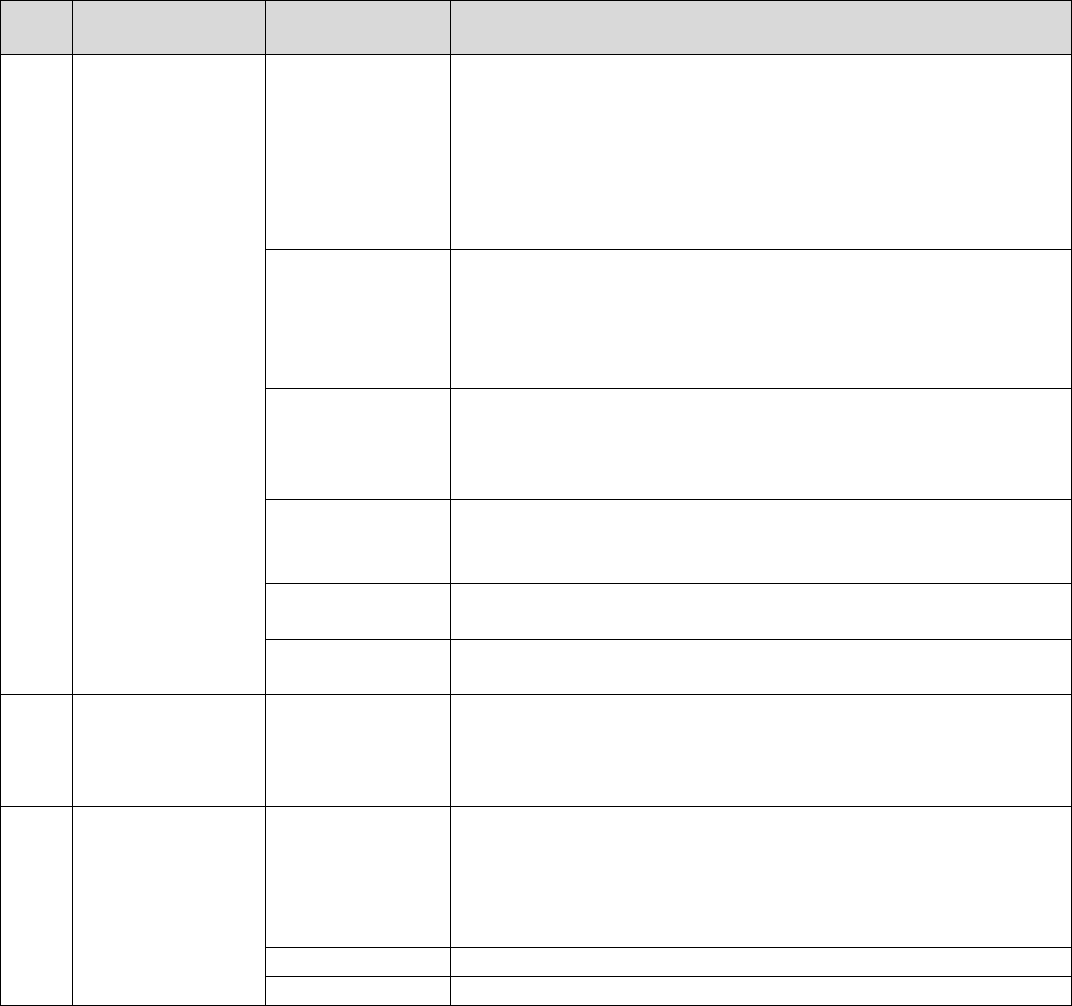
22
Transition Points #2-4
When Transition
Point Occurs
Program
Major Assessments
2
Entry to Student
Teaching
All initial
programs
Passing score on required Oklahoma Subject Area Tests (OSATs)
Satisfactory dispositional assessment from EDUC 4313
Practicum: Impacts on Learning
Passing score on 5 portfolio standards
Satisfactory dispositional assessment from at least one methods
course
Additional program requirements listed below
Early Childhood
C or better in all Early Childhood major coursework
Satisfactory dispositional assessments from EDUC 4463
Mathematics Methods and EDUC 4552 Diagnosis & Remediation
of Reading Difficulties
Passing score on Early Childhood portfolio
Elementary
Satisfactory dispositional assessments from EDUC 4463
Mathematics Methods and EDUC 4552 Diagnosis & Remediation
of Reading Difficulties
C or better in all major coursework
English
C or better in all English Education major and professional
education courses
Submission of content portfolio
Social Studies
C or better in all Social Studies Education major and professional
education courses
Special Education
(add on)
Passing score on Oklahoma Reading Test
3
Exit from Student
Teaching
All initial
programs
Passing scores for final 10 standards
Satisfactory student teaching evaluations
Submission of PPAT Tasks 1-4 to ETS, each of which is 100%
complete
4
Program
Completion
All initial
programs
Completion of Exit Survey
Retention GPA of 2.5 or better
Completion of foreign language proficiency
Completion of all courses required for certification
Additional program requirements listed below
Early Childhood
C or better in all courses required for certification
Elementary
C or better in all courses required for certification
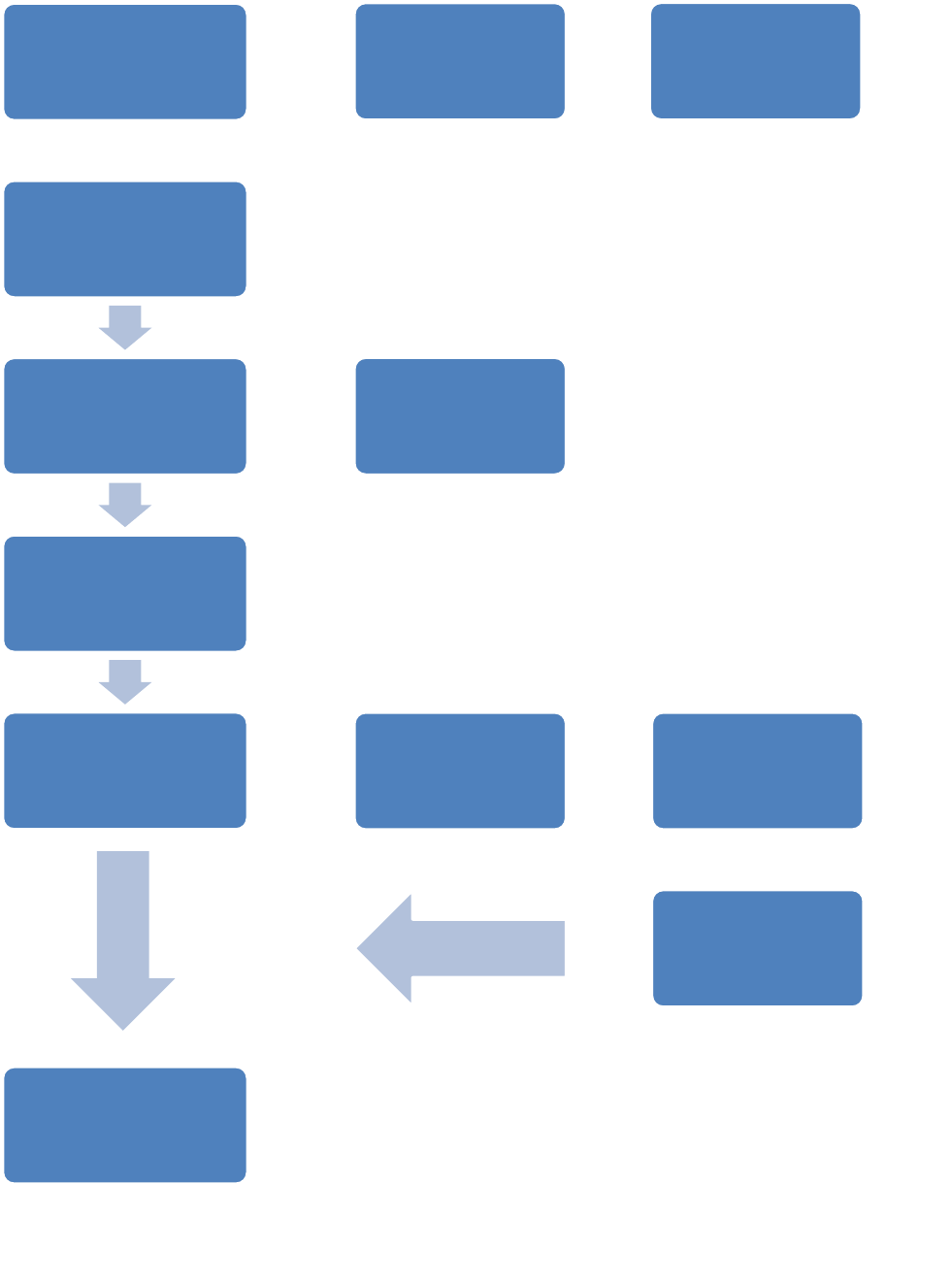
23
ADMISSION TO EDUCATOR PREPARATION
TEACHER
CERTIFICATION
SPECIALIST
Request faculty
recommendations
Follow up on faculty
recs as needed
STUDENT
Register for OGET
Pick up/return
application for
Admission to Educator
Preparation
Submit official OGET
(or ACT or SAT) score &
select interview time
Interview for admission
to educator
preparation
Self-enroll in restricted
classes
EDUCATOR
PREPARATION
FACULTY
Conduct interviews
Present candidate
info to EPC for
approval
rev. 7/16
24
Process for Gaining Admission to Educator Preparation
1. Request and complete an application for admission.
When you register for the OGET, you will want to complete an application for Admission to Educator
Preparation. Each application consists of an application form, an autobiographical data sheet, and a
recommendation request information form. Application packets are available from Ramona Mott in Lawton
or Jayne McLoughlin at RSU.
Select faculty recommenders.
As part of your application, you will be asked to identify and provide email addresses for three faculty
members to recommend you for admission to educator preparation – two from general education classes
and one from an education class. When submitting your application, please be mindful of the time of year.
You should not expect faculty to be available during breaks and other busy times, such as finals week.
2. Sign up for an interview.
Interviews will occur at set times throughout the year corresponding with Cameron enrollment. You may
sign up for an interview with Ramona Mott in Lawton or Jayne McLoughlin at RSU.
3. Interview
Complete an interview with a committee of faculty members. You can expect to be asked several questions
about your experiences as they relate to your desire to be a teacher. The committee is responsible for
recommending you for admission to the program.
4. Receive notice of your acceptance into the Educator Preparation program.
The Educator Preparation Council meets after the interviews to review committee recommendations and
candidate information to determine whether or not candidates will be accepted into the Educator
Preparation program (conditional on a passing score on a lesson plan). Following their determination, the
hold on your enrollment will be lifted so that you may enroll in restricted classes. You will also receive a
formal letter acknowledging your acceptance.
rev. 6/21
25
Admission to Educator Preparation Policies
Students Who Have Been Admitted to Educator Preparation at Another University
Transfer candidates who were admitted to teacher education at another college or university may receive
conditional admission to educator preparation at Cameron for one semester. Conditional admission means
candidates will be allowed to enroll in restricted courses for one semester. During that time, the following items
must be completed:
passing score on admission interview
passing scores on three (3) recommendation forms completed by faculty in attendance at the
interview
passing score on the OGET
GPA of 2.5 or better
completion of courses required for entry to educator preparation with grade of “C” or better
passing score on lesson plan and reflection
Transfer candidates will automatically receive a score of “3” for the Nelson Denny test based on the premise
that a passing score on the OGET indicates at least an average score on the Nelson Denny.
Students Who Are Seeking Readmission to Educator Preparation at Cameron
Candidates who have been previously admitted to educator preparation at Cameron University and whose
admission has lapsed may receive conditional re-admission for one semester. Conditional admission means
candidates will be allowed to enroll in restricted courses for one semester. During that time, the following items
must be completed:
passing score on admission interview
passing scores on three (3) recommendation forms completed by faculty in attendance at the
interview
GPA of 2.5 or better
26
Foreign Language Proficiency for Students in Educator Preparation
Cameron University educator preparation candidates must meet the Oklahoma State Regents requirement
addressing foreign language or Emergent Bilingual/English Learning (OSRHE 3.21.4 § E) prior to program
completion. This requirement may be met in any one of the following ways:
Demonstrate foreign language proficiency at the novice-high level (as defined by Cameron University’s
Department of Communication, English, and Foreign Languages).
Complete one semester of a foreign language course at Cameron University with a grade of C or better.
Complete one semester of a foreign language course (including American Sign Language) at any
accredited college or university within the US with a grade of C or better.
Take and pass a university foreign language proficiency exam to determine level of oral and listening
competence in the language.
Receive at least three (3) hours credit in foreign language from Advanced Placement, CLEP or
DSST/DANTES testing.
Have earned at least three (3) hours credit in foreign language through Advanced Credit: Military (DLPT
testing) on transcript.
Students from accredited colleges and universities outside the United States will be considered on an individual
basis.
OR
Complete an approved course focused on and assessing knowledge and skills related to Emergent Bilingual
and/or English Language Learning including strategies required for successful delivery of P-12 instruction in that
area.
Approved TEC 2/21/2001; Rev EPC 5/3/2021
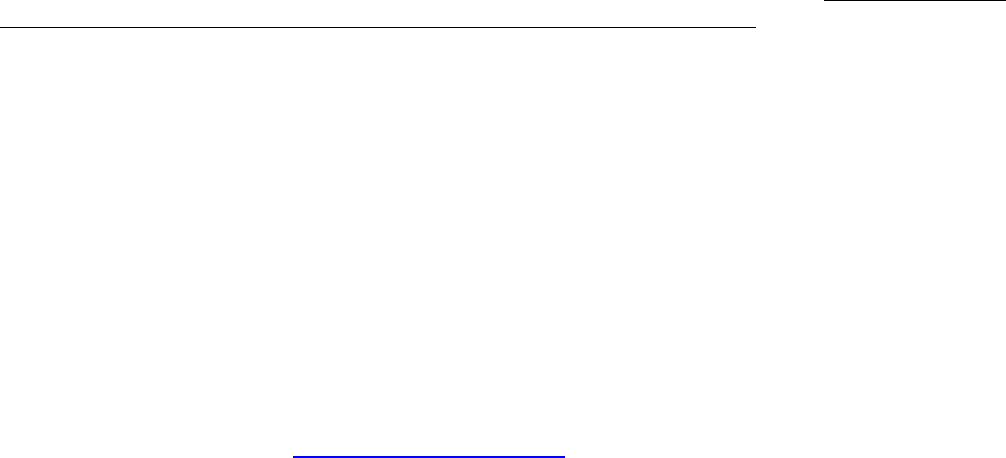
27
Oklahoma State Certification Tests
The Office of Educational Quality and Accountability (OEQA) developed a testing program for teachers in the
State of Oklahoma with the National Evaluation Service. Students admitted to teacher education programs after
September 1, 1997, will participate in this testing program in order to receive their initial teaching license.
There are 3 tests: Oklahoma General Education Test (OGET), Oklahoma Subject Area Tests (OSAT), and
Oklahoma Professional Teachers Examination (OPTE). Beginning spring 2021, the state of Oklahoma will replace
the OPTE with the Praxis Professional Teacher Assessment from ETS. Until that time, OEQA will allow Cameron
University candidates to substitute a passing score on the PPAT in place of a passing score on the OPTE.
To be admitted to educator preparation at Cameron, students must have a passing score on the OGET; to be
admitted to student teaching at Cameron, students must have a passing score on the OSAT. Please be mindful of
score reporting dates as scores must be received prior to these key transition points.
All certification tests are now required to be taken on the computer. Computer-based testing (CBT) for these
tests is available during specific testing windows at Pearson Professional Centers in Lawton, Chickasha, and
across the nation. Students who need to retake a test that corresponds to a Cameron University approved
education program must wait 30 days before retaking the same test.
The tests will contain both multiple choice type items and “constructed response” items. Constructed response
items are like essay questions.
Information about the tests is available in the Lawton Office of Educator Preparation or the RSU Cameron
Education Program office.
Study materials are available from the Cameron University library.
Test Registration & Information: http://www.ceoe.nesinc.com/
28
Praxis Performance Assessment for Teachers (PPAT)
About the PPAT
Beginning in spring 2019, Cameron University is requiring all candidates to complete the PPAT (from ETS)—a
performance-based evaluation of candidate performance. The PPAT is completed during student teaching; it
replaces the Teacher Work Sample that used to be completed during EDUC 4313 Practicum: Impacts on
Learning. In addition, candidates from Cameron may substitute a passing score on the PPAT for a passing score
on the OPTE for Oklahoma state certification. As of spring 2021, the PPAT will be required by the state of
Oklahoma for certification in place of the OPTE.
The PPAT evaluates candidates on their abilities to impact student learning as it relates to the InTASC Model
Core Teaching Standards, demonstrating that they have the basic pedagogical content knowledge and
application for the classroom to begin teaching as an entry-level teacher. It is designed to
develop more effective teachers in the classroom,
identify strengths and areas for improvement of practice,
allow student teachers to continually refine their teaching practices, and
contribute to a development plan for professional growth.
Task 2 requires candidates to describe, analyze, and reflect on “Assessment and Data Collection to Measure and
Inform Student Learning.” Task 3 requires candidates to describe, analyze, and reflect on “Designing Instruction
for Student Learning.” Task 4 requires candidates to “Implement and Analyze Instruction to Promote Student
Learning.”
Candidates will receive instruction focused on writing styles and selection of evidence. They will also submit
drafts of their writing and participate in peer review. Details about these tasks including writing prompts,
assessment rubrics, and deadlines can be found in the syllabus for Back to Campus. Mentor teachers will receive
training on the PPAT during Mentor Training to help them best assist their student teachers will the PPAT tasks.
Candidate Expectations
The Praxis Performance Assessment of Teaching (PPAT) developed by ETS is the culminating assessment of
Cameron University’s Educator Preparation program. The PPAT measures the degree to which a student can be
considered “classroom-ready,” and as such Cameron will use student scores on the PPAT to determine program
completion. For this reason, students are expected to do their best work on the PPAT. Not doing their best work
will be viewed as an indication that a student is not classroom-ready and will result in remediation academically
and dispositionally prior to program completion.
Payment
Students are responsible for purchasing a PPAT registration code at the beginning of the student teaching
semester. Registration codes are purchased from the ETS website. Details about payment will be shared before
or during the first week of Back to Campus.
29
ETS Regulations
Students must adhere to all PPAT policies set forth by ETS. As with other nationally-normed assessments,
Cameron University does not retain any control regarding these set policies.
Registration & Submission Deadlines
Students must meet all required PPAT deadlines including registration and task submissions. Deadlines for both
fall and spring are published by ETS during July. Because the registration deadline is non-negotiable, students
who fail to meet the deadline will be unable to graduate until they can complete the PPAT during the next full
semester. ETS does allow for late registration and late submission with additional fees. Students should contact
ETS for more information.
Resubmission Policy
Scores for all PPAT tasks and a cumulative assessment score are available approximately three weeks after the
submission deadline for Task 4. After you receive your scores, there is a short resubmission window. If your
assessment score falls below the passing score for the assessment, you are eligible to resubmit any or all three
tasks (Tasks 2, 3 or 4) for a fee. Students should follow the instructions on the ETS website regarding
resubmission.
30
Field Experience Policies
Education candidates at Cameron University are required to complete a variety of field experiences as part of
their coursework. These experiences vary from observations in Introduction to Teaching to a full internship
during the final semester. All field placements at Cameron are jointly determined between the Coordinator of
Field Experiences/Academic Advisement Specialist at Rogers State University and the public schools.
Background Checks
All undergraduate candidates must pass an initial background check during EDUC 3003: Introduction to
Teaching, prior to beginning the required field experience for that class. All undergraduate candidates must pass
a re-check prior to EDUC 4313 Practicum: Impacts on Learning or after two years has elapsed, whichever comes
first. Should a candidate reach the re-check point prior to EDUC 4313, the candidate will be allowed to use their
re-check for EDUC 4313 provided that re-check occurred within the same academic year. In the event that a
candidate is enrolled in the teacher education program for more than four years, additional re-checks will be
required. Candidates who work full-time in an accredited school can meet the background check requirement
with by completing a School Employment Verification Form.
Diversity of Placements
Cameron University is dedicated to preparing teacher education students for working with diverse student
populations. In order to reach this goal, all students must experience a variety of field placements including
schools of high and low socio-economic status, schools with a high minority population, and classrooms of
students with special needs. These criteria are of high importance when field placements are assigned. For this
reason, you will not complete more than one field placement at the same school and you may be required to
complete field placements both in and out of Lawton/Claremore.
Field Experience Transfer Policy
In the event that you are transferring in a class from another university in place of a Cameron course that
includes a field experience, you must either provide documentation of the completed field experience or
complete an additional, equivalent field experience at Cameron. Transfer field experiences will be handled
through the Office of Field Experiences/CU Education at RSU Office.
Assigning Placements
All field placements will be made by the Office of Field Experiences/CU Education at RSU Office. Many steps are
involved in making your field placements from you filling out the Field Placement Request form to getting
permission from principals and classroom teachers for you to visit their classrooms. The following policies are in
place to ensure the validity of your field placements.
Placements will be made primarily in the Lawton area. Exceptions will be made for candidates in the RSU
program and those taking classes via ITV or on nights and weekends. For those of you living outside of Lawton,
we prefer to save the nearest local schools for your student teaching.
The Coordinator of Field Experiences/Academic Advisement Specialist at Rogers State University considers the
following guidelines when making placements. Recent high school graduates are not typically placed in high
school settings in their freshman or sophomore year at Cameron. Only in rare cases will students be placed in
schools which their children attend or at which a relative is employed.

31
Procedure for Appealing a Placement
Candidates wishing to appeal their placements may do so in writing to the Coordinator of Field
Experiences/Academic Advisement Specialist at Rogers State University. Further appeals should be made in
writing to the Director of Educator Preparation.
Guidelines for Being in the Schools
Dress professionally at all times when you are in the schools. This includes avoiding any revealing clothing,
covering tattoos, and removing piercings.
Leave cell phones and pagers in your vehicle or turn them off while in the schools. Please do not expect to
answer a call or respond to a text message while you are observing.
Plan on at least one hour for each visit to the school.
You are required to sign in at the office during each visit to the school.
You should not expect to observe during lunch times (11:00-12:30 for elementary and 11:30-1:00 for
secondary) or only on Fridays as this will negatively impact your ability to schedule observation time or the
quality of the lessons you observe while at the school.
Your available times to observe are sent to the schools as a guide when making your placement. You can and
should negotiate your times with your assigned teacher once you make initial contact with the school.
Evaluation of Field Experiences
Your field experiences will be evaluated, either by the classroom teacher with whom you work or by your
Cameron instructor. Prior to your field experience, your instructor should share the assessment form that will be
used with you. The results of these assessments will be shared with you at the conclusion of the course during
which it is used.
Dealing with Field Experience Concerns
Should you have a concern about your field experience, the first thing you should do is communicate with your
Cameron instructor. From there, your instructor will either speak to the Coordinator of Field
Experiences/Academic Advisement Specialist at Rogers State University or send you to contact the coordinator
directly. If your concern involves your instructor, then you may approach the Coordinator of Field
Experiences/Academic Advisement Specialist at Rogers State University.
rev. 7/18
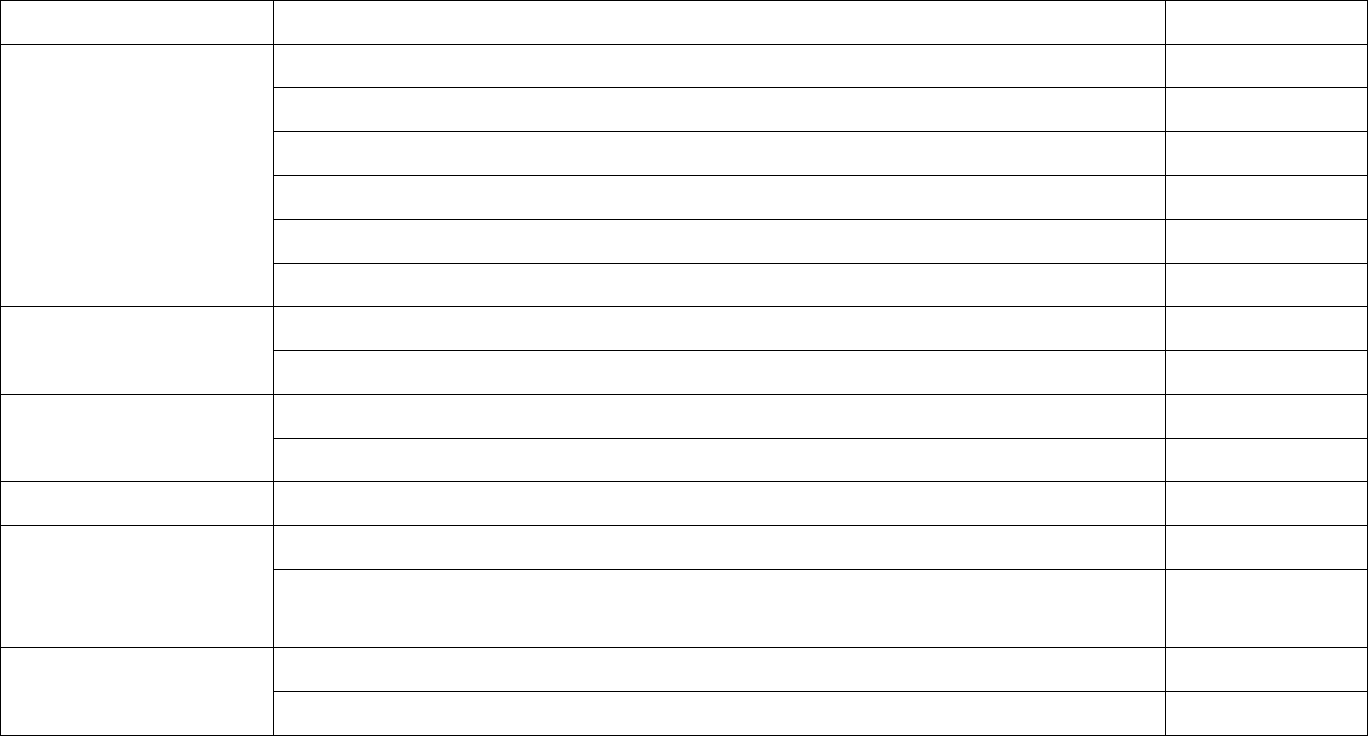
32
Education Programs – Required Field Experiences
Program(s)
Course
Hours
All
EDUC 3003 Introduction to Teaching
10
SPED 3103 The Exceptional Child
10
EDUC 3753 Educational Psychology
10
EDUC 4313 Practicum: Impacts on Learning
60
EDUC 4935 Clinical Experience in Teaching I
240
EDUC 4945 Clinical Experience in Teaching II
240
Early Childhood
ECE 3154 Methods & Practicum in Early Childhood Education
35
ECE 4144 Methods & Practicum in Cognitive Development
35
Early Childhood and
Elementary
EDUC 4463 Mathematics Methods
10
EDUC 4553 Diagnosis & Remediation of Reading Difficulties
10
English
ENGL 4773 Teaching of English
10
Music
MUSC 4712 Elementary Methods
10
MUSC 4722 Secondary Instrumental Methods (or)
MUSC 4732 Secondary Vocal Methods
10
Special Education
(add on)
SPED 3203: Characteristics of the Exceptional Learner
4
SPED 4413: Teaching Students with Disabilities
4

33
Descriptions of Undergraduate Field Experiences
All Programs
EDUC 3003 Introduction to Teaching—Ten (10) hours of tutoring students in a public school setting. Candidates
write up their experiences in an observation paper.
SPED 3103 The Exceptional Child—Ten (10) hours of observation in a classroom of children with exceptionalities.
Candidates may observe a special education classroom or a regular education classroom containing several
children with exceptionalities.
EDUC 3753 Educational Psychology—Ten (10) hours of focused observations in a classroom. Candidates look for
and document given elements of teaching. Each focused observation is recorded and analyzed.
EDUC 4313 Practicum: Impacts on Learning—Sixty (60) hours of observation, teacher assistance, and teaching in a
single classroom. Each candidate gives a pre-test, teaches a series of lessons, and gives a post-test to determine
student learning gains. A detailed Teacher Work Sample is created in conjunction with the field experience.
EDUC 4935 Clinical Experiences in Teaching I—Six (6) to seven (7) weeks of student teaching. Candidates complete
the Praxis Performance Assessment for Teachers (PPAT).
EDUC 4945 Clinical Experiences in Teaching II—Six (6) to seven (7) weeks of student teaching. Candidates
complete the Praxis Performance Assessment for Teachers (PPAT).
Program-Specific
ECE 3154 Methods & Practicum in Early Childhood Education—Thirty-five (35) hours in an early childhood
classroom including focused teaching of small groups.
ECE 4144 Methods & Practicum in Cognitive Development—Thirty-five (35) hours in an early childhood classroom
including focused teaching of small groups.
EDUC 4463 Mathematics Methods—Ten (10) hours of individual or small group tutoring in the area of math.
Candidates design a series of lesson plans covering multiple topics and teach them to children. Candidates also
turn in written reflections about their experiences in the field.
EDUC 4553 Diagnosis & Remediation of Reading Difficulties—Ten (10) hours of individual tutoring in the area of
reading. Each candidate assesses a single child’s reading ability, creates a series of lessons aimed at improving the
reading, and delivers the lessons in a one-on-one setting. Candidates write a case study based on their
experiences.
ENGL 4773 Teaching of English—Observation in a secondary English classroom.
MUSC 4712 Elementary Methods—Observation and working with students in an elementary music class
MUSC 4722/4732 Secondary Instrumental/Vocal Methods—Observation and working with students in an
instrumental/vocal music class
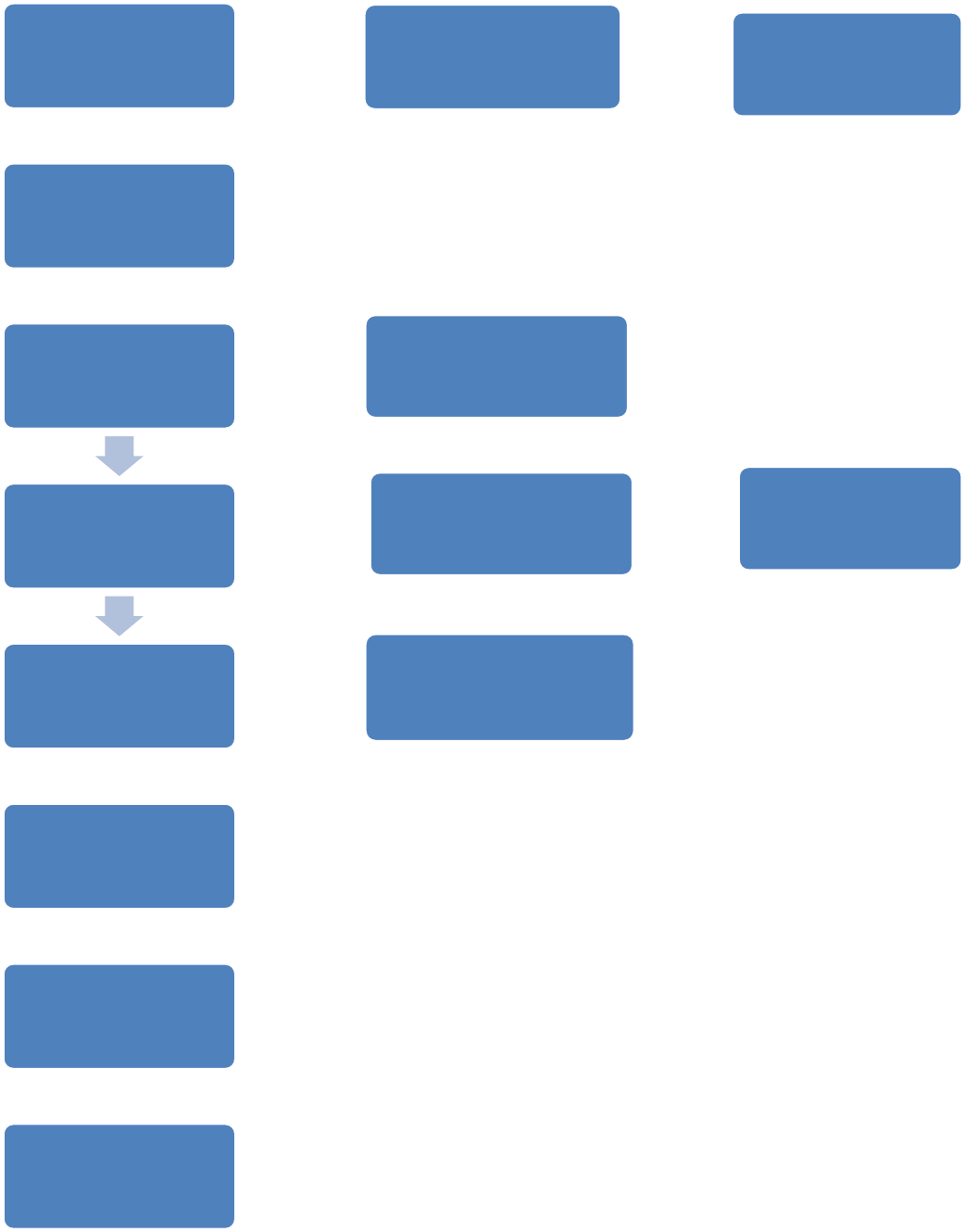
34
ENTRY TO STUDENT TEA CHING
STUDENT
Register for/take
OSAT(s)
Attend meeting during
Practicum class
Return completed
application for student
teaching to Jayne
McLoughlin or Jackie
Herbert
Attend small group or
individual meeting
Apply to graduate in
Registrar's Office
See advisor to enroll in
student teaching &
classroom management
Submit official OSAT
scores to Mrs. Mott
ADVISEMENT SPECIALIST /
FIELD EXPERIENCES
SPECIALIST
Lead meeting during
Practicum class (general
info)
Lead small group or
individual meetings
Request portfolio check on
students
DIRECTOR OF
EDUCATOR
PREPARATION
Conduct portfolio
check on students
35
Process for Gaining Entry to Student Teaching
1. Complete an application for student teaching.
The application packet includes an application form, a dispositional self-assessment, criminal history
disclosure, and personal information sheet. When possible, applications will be distributed by email or
during EDUC 4313 Practicum: Impacts on Learning.
2. Sign up for a small group or individual meeting.
Student teaching meetings occur after applications are due. When you return your application for student
teaching, you will be able to sign up for a meeting time.
3. Meet with Academic Advisement Specialist/Field Experiences Specialist
The purpose of the small group meeting is to discuss placement information and to ensure all degree
requirements and key assessments required for student teaching have been (or are in the process of being)
met.
Out of Area Student Teaching Placements
Candidates who are unable to complete their student teaching in the Lawton area may be allowed to do so in
conjunction with another university with an equivalent NCATE/CAEP-accredited program after receiving
approval from the Educator Preparation Council. Candidates are financially responsible for all fees charged by
the host university. A candidate wishing to complete the student teaching out-of-state must complete an
Application for Out-of-Area Student Teaching Placement at least six months prior to the end of the pre-student
teaching semester.
While personal problems and/or logistical constrictions will be taken into consideration to the extent possible
(e.g. travel time, leases or other living arrangements, child care), they will not dictate nor guarantee placement
within any particular locale. All student teaching placements are made with the student’s professional needs
and best interests in mind. Cameron University assumes no responsibility for delays in placement due to “red
tape” in arranging the placement. Also, all requirements for student teaching in out-of-area schools must be
satisfied prior to the beginning of a placement (e.g. TB test).
36
Academic Labs
The Academic Labs are provided to give students an opportunity to improve their academic skills. Students can
increase their reading, study, test taking, math, and writing skills with concentrated individual effort. The
instructors in the Labs are able to develop individual programs or to direct students to appropriate classes.
Students are urged to take advantage of this free service whenever they need it but especially early in the
semester when they have time to improve for that semester.
Lawton
1. CENTER FOR ACADEMIC SUPPORT – NB 2060
This lab specializes in study skills, improvement of reading, and test taking skills.
2. CENTER FOR WRITERS – NB 2060
This lab provides assistance for all types of writing. Students receive assistance for their individual
writing problems.
3. MATH LAB – BURCH 104
The instructors in this lab will assist students with their individual needs in mathematics.
Rogers State University
1. DEVELOPMENTAL READING LAB – Health Sciences 227
This lab provides assistance for Developmental Reading I. Individualized programs can be developed
with the instructor.
2. THE WRITING CENTER – Baird Hall 206
This lab provides assistance for Basic Writing, Composition I, Composition II, and Essay Writing. Tutors
will also proofread papers for other courses.
3. MATH & SCIENCE TUTORING – Stratton Taylor Library 116
This lab provides assistance for Elementary Algebra Plus, Intermediate Algebra, College Algebra, Math
for Critical Thinking, and Math Structures I and II.
Tutor.com
Tutor.com is an online tutoring service that provides one-to-one personalized access to expert tutors 24 hours a
day, 7 days a week. Cameron students have access to 10 free hours of tutoring through Tutor.com each
semester with the option of purchasing additional hours directly from Tutor.com. Help is available in writing and
can be accessed directly from your Blackboard Course side menu or through tools.
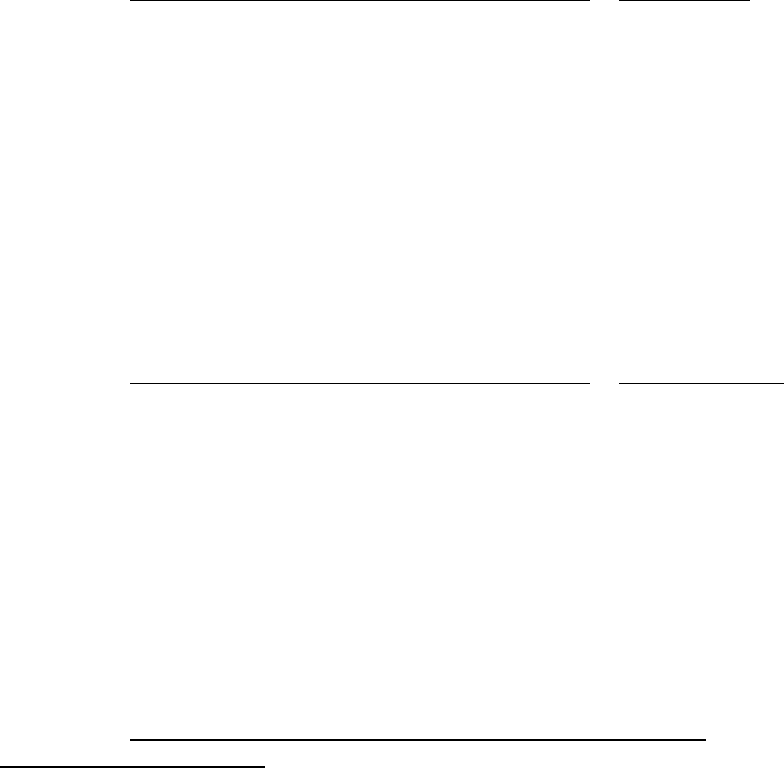
37
Student Organizations
Oklahoma Aspiring Educators Association (OAEA)
Sponsors: Michelle Smith, Lawton campus
Eileen Richardson, RSU campus
This organization is open to all students who are planning to be teachers. It is the Cameron unit of the
statewide organization, the Oklahoma Education Association (OEA). There are a number of benefits to
joining this group including the availability of professional liability insurance for coverage when working
in the public schools. SOEA plans meetings with informative guest speakers and hands on activities.
SOEA also conducts certification test study sessions once a year. Watch bulletin boards and listen in
class for announcements of upcoming meetings.
Learn more at http://www.cameron.edu/education/organizations or www.okea.org
Council for Exceptional Children (CEC)
Sponsor: Holly Rice
This is a student chapter of the Council for Exceptional Children. The dues include two journals. This
group meets monthly and students attend one state meeting a year. In addition to the meetings there
are activities with children with disabilities. Anyone who is interested is eligible for membership and
encouraged to participate.
Learn more at http://www.cameron.edu/education/organizations or www.cec.sped.org
Students in Early Childhood Education (SECE)
Sponsor: Jami Huck
Cameron University's distinctive organization for Early Childhood Education, SECE promotes the
development of Early Childhood Education students and provides opportunities for those who are going
to become educators of young children.
Learn more at https://www.facebook.com/pages/Students-in-Early-Childhood-
Education/147992168677689

38
Honor Society
Kappa Delta Pi Honor Society
Contact: Ramona Hall & Stacie Garrett, Lawton campus
Eileen Richardson, RSU campus
The mission of Kappa Delta Pi is to sustain an honored community of diverse educators by promoting excellence
and advancing scholarship, leadership, and service. The vision of Kappa Delta Pi is to help committed educators
be leaders in improving education for global citizenship. Individually and collectively, Society members recognize
and honor achievement; strive to a high degree of professional fellowship, leadership, and growth in the field of
education; and serve their students and educational community.
Cameron’s Upsilon Xi chapter issues invitations for membership to education students who have completed at
least 30 hours of coursework, demonstrate a cumulative GPA of 3.0 or better, and demonstrate leadership
abilities.
Learn more at http://www.cameron.edu/education/honors or www.kdp.org
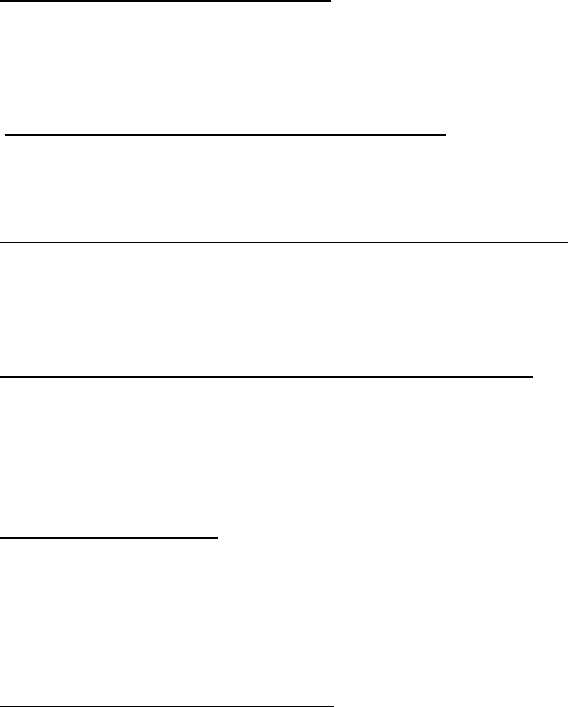
39
Undergraduate Education Scholarships & Financial Incentives
Cameron Scholarships
Jane M. Morse Memorial Scholarship - Awarded for the fall during the preceding spring semester. Applicants must
have a cumulative 3.0 GPA or above, be admitted to the teacher education program in elementary education, and
enrolled in at least twelve hours of course work at Cameron. Applications are available on the Cameron financial
assistance website.
Sondra Bonnington Special Education Scholarship - Awarded for the fall during the preceding spring semester.
Applicants must be classified as a junior, senior, or graduate, be seeking special education certification, and
enrolled in special education courses. Applications are available on the Cameron financial assistance website.
Irene and Buck Clements Early Childhood Education Scholarship - Awarded for the fall during the preceding spring
semester. Applicants must be currently enrolled in or have completed early childhood classes, participate in
extracurricular activities on and/or off campus, and be eligible for admission to teacher education. Applications are
available on the Cameron financial assistance website.
Comanche County Retired Teachers Association Scholarship - Awarded each year to pre-service teacher who is a
junior or above (may be post-baccalaureate). Criteria are GPA, 2 letters of reference, need, an interview, and a 300
word essay. Finalists are selected by the Department Scholarship Committee. A panel from the Comanche County
Retired Teachers Association reviews the finalists and selects the recipient. Applications are available in the Office
of Educator Preparation (Nance-Boyer 1053).
Scottish Rite Scholarship - Awarded for the fall during the preceding spring semester. Student must be student
teaching in the spring of the academic year for which the award is made. Applications are available from Nance-
Boyer 1078 or the Cameron University at Rogers State University in Prep Hall 204.
State of Oklahoma Scholarships
Regent’s Future Teacher Scholarships - Awarded for the fall during the preceding spring semester for areas of
teacher shortages. An application and information on shortage areas may be obtained from the Office of Educator
Preparation (Nance-Boyer 1053).
Cameron Financial Resource Specialists
Cameron now offers a student-centered counseling service to discuss the costs of college, funding options, financial
aid, billing, CU scholarships, and external funding sources. Meet with a specialist in the Student Enrichment Center
(Nance-Boyer 2075).
40
Department of Education Complaint Procedure
In the event that a dispute arises between a candidate and a faculty member in the Department of
Education, the candidate is expected to follow the procedures detailed below.
Lawton
1. The candidate speaks directly to the faculty member against whom he or she has a complaint. If not
resolved:
2. The Department Chair is contacted in person or by email. The Department Chair will schedule a
meeting and will request a written complaint. If not resolved:
3. A written statement is filed with the Dean of the School of Graduate and Professional Studies. The
Dean will request a meeting. If not resolved:
4. The candidate may appeal to the Vice President of Academic Affairs or the Dean of Students as
appropriate.
RSU
1. The candidate speaks directly to the faculty member against whom he or she has a complaint. If not
resolved:
2. The Academic Advisement Specialist at RSU is contacted in person or by email. The coordinator will
schedule a meeting and will request a written complaint. If not resolved:
3. The Department Chair is contacted by phone or by email. The Department Chair will schedule a
meeting and will request a written complaint. If not resolved:
4. A written statement is filed with the Dean of the School of Graduate and Professional Studies. The
Dean will request a meeting. If not resolved:
5. The candidate may appeal to the Vice President of Academic Affairs or the Dean of Students as
appropriate.
All written complaints will be kept on file for three years in the appropriate office.
Education Programs - Plan of Improvement
A plan of improvement detailing the area(s) of concern and the expectations for improvement may be
put into place as the need arises. Once a need for a plan of improvement has been identified, a meeting
will occur with the student, instructor, and department chair. Failure to provide evidence of
improvement in the areas included in the plan will result in action taken at the discretion of the course
instructor. An appeal of the plan may be made in writing to the Chair of the Education
Department/Academic Advisement Specialist at RSU. In the event that the chair/coordinator and
instructor are the same, a written appeal may be made to the Dean.
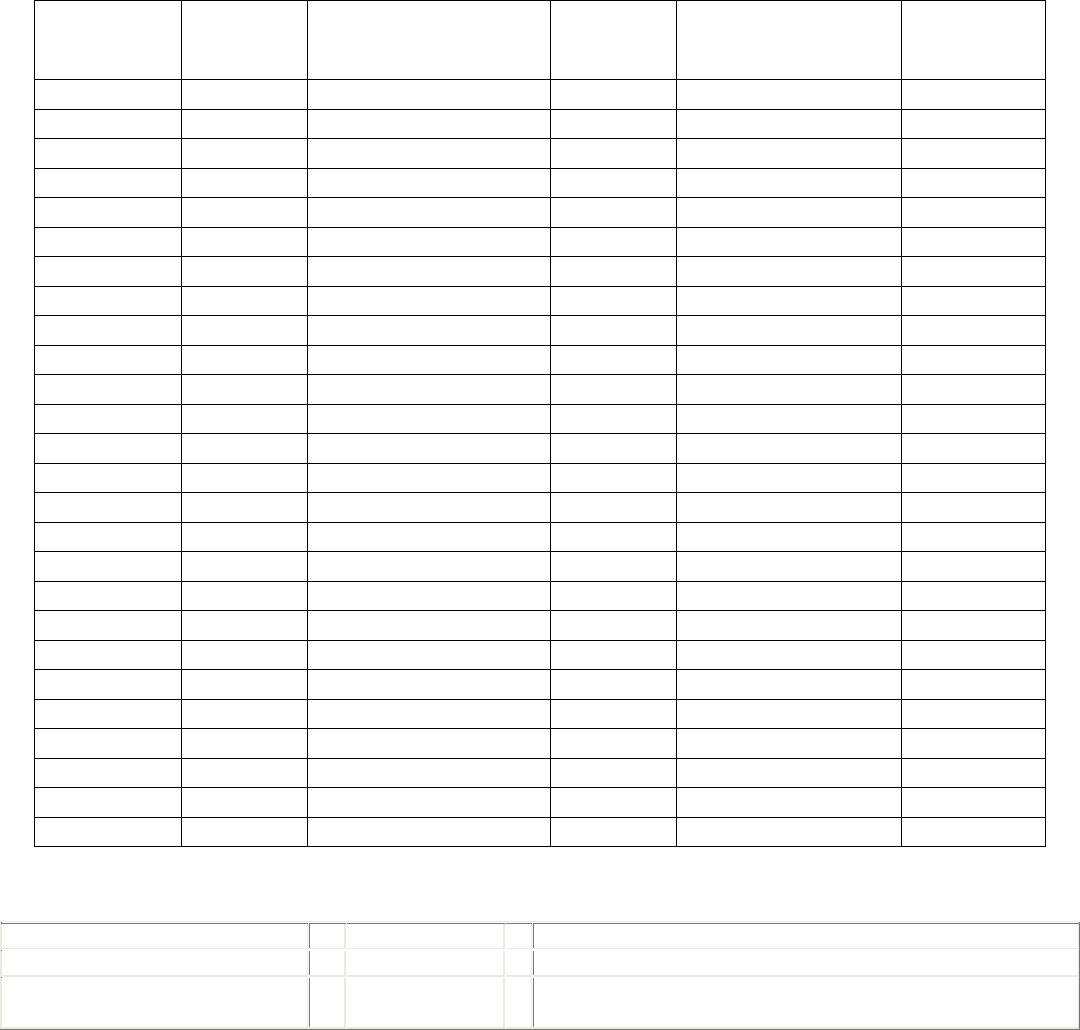
41
State Minimum Teacher Salary Schedule
Beginning with the 2018-2019 school year, teachers in the public schools of Oklahoma shall receive in salary and/or
fringe benefits not less than the amount specified in the following schedule. When determining minimum salary, “fringe
benefits” shall mean only the employee's share of retirement, if paid by the district.
Years of
Experience
Bachelor's
Degree
*Bachelor's + National
Board Certification
Master's
Degree
*Master's + National
Board Certification
Doctor's
Degree
0
$36,601
$37,759
$37,991
$39,149
$39,381
1
37,035
38,193
38,425
39,583
39,815
2
37,469
38,628
38,859
40,018
40,249
3
37,904
39,062
39,294
40,452
40,684
4
38,338
39,496
39,728
40,886
41,118
5
38,810
39,968
40,200
41,358
41,590
6
39,273
40,432
40,663
41,822
42,054
7
39,737
40,895
41,127
42,285
42,517
8
40,200
41,358
41,590
42,749
42,980
9
40,663
41,822
42,054
43,212
43,444
10
41,684
42,844
43,568
44,728
45,945
11
42,177
43,336
44,061
45,221
46,438
12
42,670
43,829
44,554
45,713
46,931
13
43,162
44,322
45,047
46,206
47,424
14
43,655
44,815
45,539
46,699
47,916
15
44,167
45,327
46,052
47,212
48,430
16
44,660
45,820
46,545
47,705
48,923
17
45,153
46,313
47,038
48,198
49,416
18
45,646
46,806
47,531
48,691
49,909
19
46,139
47,299
48,024
49,184
50,402
20
46,652
47,813
48,538
49,698
50,917
21
47,145
48,306
49,031
50,192
51,410
22
47,639
48,799
49,524
50,685
51,903
23
48,132
49,292
50,018
51,178
52,397
24
48,625
49,785
50,511
51,671
52,890
25+
50,049
51,232
51,971
53,153
54,395
Note: Teachers eligible to receive the National Board Certification bonus shall not be eligible to receive the additional salary
increment set forth in this salary schedule.
*National Board Certification columns are for teacher's who received National Board Certification after June 30, 2013.
Career /Technology Ag Teacher*
=
Minimum Salary
+
$2,600/year - 12-month contract
Other Career/Tech Teacher*
=
Minimum Salary
+
$2,200/year - 10-month contract
Special Education Teacher**
=
Minimum Salary
+
5 percent above the prevailing wage paid teachers of children who
are nondisabled in the same school district.
*Salary distribution per the policies and procedures manual of the Oklahoma State Board of Career and Technology Education.
**Salary distribution mandated by 70 O.S. § 13-110. Also includes Resource Teachers, Education Diagnosticians, and Speech Pathologists
/Therapists.
The State Board of Education shall accept teaching experience from out-of-state school districts that are accredited by the State Board of Education
or appropriate state accrediting agency for said districts. For the purpose of state salary increments and retirement, no teacher shall be granted
credit for more than five (5) years active duty in the military service, or out-of-state teaching experience as a certified teacher or its equivalent.
Nothing in this section shall prohibit boards of education from crediting more years of experience on local salary schedules than those allowed for
state purposes. The provisions of the above salary schedule shall not apply to teachers who have entered into postretirement employment with a
public school in Oklahoma and are still receiving a monthly retirement benefit. (70 O.S. § 18-114.7)

42
COVID-19 Policy Adjustment
S/U or P/NP Grades for Undergraduate Candidates
Because the pandemic COVID-19 caused the second half of the spring 2020 semester to occur as virtual
learning, and because Cameron University gave all students the option to change from a letter grade to a
grade of S/U, a grade of S for a Cameron University class taken during spring 2020 will be considered a “grade
of C or better” for purposes of admissions and subsequent transition points at the undergraduate level.
Should a student wishing to transfer a course taken in spring 2020 from another university that also gave an
S/U, P/NP, or similar option for the semester, that course will also be considered a “grade of C or better” for
purposes of admissions and subsequent transition points.
Teacher Supply and Demand Study
September 2015
The Oklahoma State Regents for Higher Education commissioned a report in partnership with several state
education agencies to study how patterns of supply and demand vary by teaching subject area and geographic
location. Findings of interest to teacher education candidates are included below, and the most current full
report can be found at https://sde.ok.gov/documents/2018-12-31/education-supply-and-demand-report
Enrollment projections for southwest Oklahoma public schools predict an accelerated decline in
annual student enrollment (1.6% to .95%)
Overall, statewide educator demand is expected to increase gradually over time.
The supply of certified teachers in the southwest region will experience slight declines (1.9%) through
2018-2019.
In the southwest region, the teacher shortage from 2014-2015 is projected to grow during the next
five years.
The following shortage areas were defined:
Language arts teachers*
Arts and music teachers
Social studies teachers*
Foreign language teachers (high school only)
Math teachers
Science teachers*
Shortages among high school teachers are generally larger than those among middle school teachers.
*Projected shortages in these areas are greatest.

43
Oklahoma Education Employment Opportunities
Cameron University posts jobs, including teaching jobs, for graduates at
http://www.collegecentral.com/cameron/. Simply sign up for an account and begin your search.
Teachers-Teachers.com also allows graduates to search for teaching positions within the state of Oklahoma.
Job seekers can post resumes to be viewed by school districts and can search posted job vacancies. Get
started by registering at www.teachers-teachers.com.
The Oklahoma Employment Security Commission also posts jobs at http://www.ok.gov/oesc_web/.
When you apply for your teaching certificate through the Oklahoma State Department of Education, you may
elect to join their job match service to find employment opportunities that match your certification areas.
